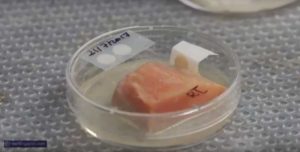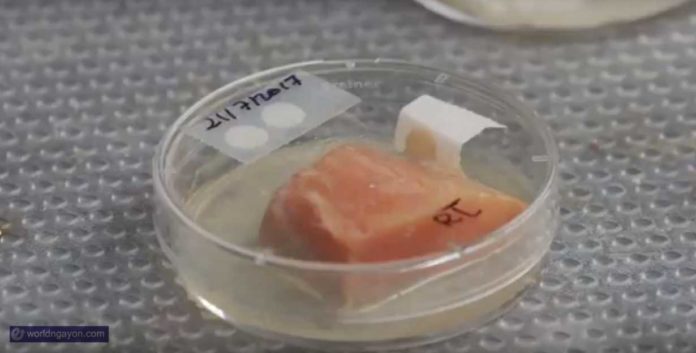WorldNgayon — have you ever experience to bite rotten bread or sip spoiled milk? This will be a thing of the past. Thanks to a new smart label that would tell you such food is no longer good for consumption.
 A low-cost, portable and paper-based sensor, developed by Professor Silvana Andreescu of Clarkson University, will be able to determine when food or cosmetics are spoiled. This innovative technology is a game changer that would transform the commercial marketplace.
A low-cost, portable and paper-based sensor, developed by Professor Silvana Andreescu of Clarkson University, will be able to determine when food or cosmetics are spoiled. This innovative technology is a game changer that would transform the commercial marketplace.
But how does this technology work?
An engineered material made of paper with some specific chemicals build to respond to some change properties in a monitored subjects like consumable foods.
As food is degrading, it produces certain chemicals — these are the target chemicals or markers that the sensors are analyzing. If the target is present, the color or electrical current changes. The sensor also determines the intensity of transformation in the properties of the food material, an important indicator for quality and safety on certain food products.
The technology took about ten years to develop. Andreescu is working closely with the team of Clarkson students and postdoctoral associates who contributed to the development of the smart label technology through material design, sensing aspects, optimization, testing and prototyping.
Also read:‘Under the skin’ blood-testing device developed
This technology was initially used to detect antioxidants in tea and wine, “this technology can also be applied to many different ways,” says Andreescu, assuring that these first generation sensors are only the beginning.
The team is currently working on their second generation sensors to extend the technology in many possible fields such as, the pesticides industry, adulterants and markers for freshness or spoilage in various stages of testing.
“We would really like to get this technology into the hands of consumers and continue to expand it to measure other toxins and pathogens to help build a quality and safer consumer industry,” says Andreescu. A press release from Clarkson University.





